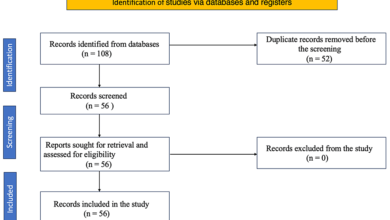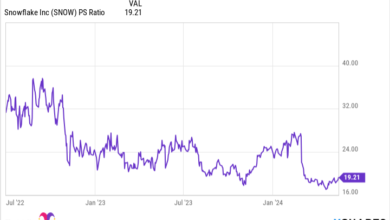2 Top Artificial Intelligence Stocks to Buy Right Now

Go with these proven winners to ride the AI boom.
Companies are spending a fortune on artificial intelligence (AI), because this technology promises major increases in productivity and cost savings. Goldman Sachs believes AI will add nearly $7 trillion of value to the global economy.
An investor only needs a few well-chosen companies to do well. Here are two highly profitable businesses that are already capitalizing on the explosive growth opportunity in AI.
1. Nvidia
The launch of OpenAI’s ChatGPT in late 2022 kicked off a massive investment cycle in data center infrastructure to train AI models, and a great deal of the investment went toward Nvidia (NVDA -10.01%), the leader in chips and other solutions for data centers.
Nvidia controls the lion’s share of the AI chip market, which is causing its revenue to grow at record rates. The stock tripled in value over the last 12 months but still offers great return potential. Management guided for revenue to triple again in the first quarter to $24 billion, mostly driven by data center products.
Data center operators, which include the big cloud companies like Amazon and Microsoft, are just getting started on this ramp of investment in AI infrastructure. Over the next six years, the average capacity of hyperscale data centers is projected to nearly triple, according to Synergy Research.
The size of this opportunity can be seen from Nvidia’s latest figures. Its data center segment raked in a whopping $48 billion last year, marking a year-over-year increase of 217%. As data center capacity expands, Nvidia’s data center revenue is likely to keep growing over the next several years.
Because sales of advanced data center chips are very lucrative, analysts expect Nvidia to increase earnings at an annualized rate of 35% over the next several years. If the stock continues to trade at the same forward price-to-earnings ratio of 34 — which is not that expensive for this level of growth — shares could easily double in value over the next five years.
2. Alphabet
Millions, if not billions, of people use Alphabet‘s (GOOG -1.10%) (GOOGL -1.23%) Google Search, Gmail, and YouTube. AI plays a big role in Alphabet’s ability to deliver relevant content to users, and importantly, driving its advertising business, which produced 77% of the company’s $307 billion in revenue last year.
There’s clearly a lot of opportunity for Google to solidify its lead in online advertising as it introduces new AI tools. For example, with generative AI, Google can answer a wider range of questions in Search, which could naturally lead to more interest from advertisers who want to get their brands in front of a highly engaged base of users.
Another opportunity for Alphabet is Google Cloud, which is currently the No. 3 cloud service behind Amazon and Microsoft. Google’s cloud business is starting to turn a profit as it continues gaining market share against other cloud vendors. Google’s generative AI solutions helped secure wins recently from major companies, including McDonald’s and Verizon.
Finally, there’s Alphabet’s enormous cash reserves. Over the last year, the company produced a whopping $69 billion in free cash flow. Its ability to roll out AI innovations and grow its profitability makes Alphabet a relatively safe AI stock to hold for the long term.
Analysts expect the company to post annualized earnings growth of nearly 17% over the long term. That rate of expansion could more than double the stock price in five years.
Suzanne Frey, an executive at Alphabet, is a member of The Motley Fool’s board of directors. John Mackey, former CEO of Whole Foods Market, an Amazon subsidiary, is a member of The Motley Fool’s board of directors. John Ballard has positions in Nvidia. The Motley Fool has positions in and recommends Alphabet, Amazon, Goldman Sachs Group, Microsoft, and Nvidia. The Motley Fool recommends Verizon Communications and recommends the following options: long January 2026 $395 calls on Microsoft and short January 2026 $405 calls on Microsoft. The Motley Fool has a disclosure policy.



